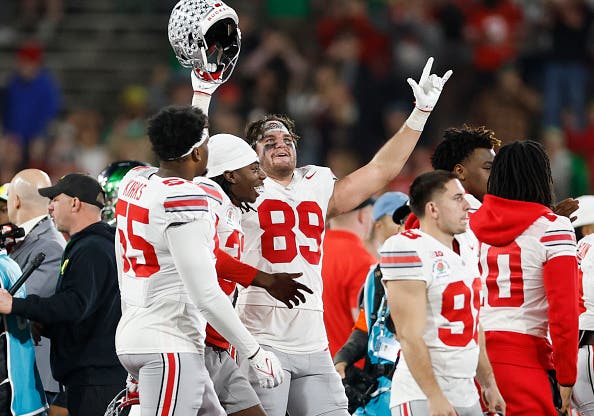
A job is more than a paycheck, it’s self-confidence, it’s social interaction and independence. It’s a feeling of self-worth.
Each year more and more young adults with Autism Spectrum Disorder age out of school, and many can - and want - to work. Yet last year a Government Accountability Office research study suggested that youth with ASD are less likely than youth with other disabilities to be successful in transitioning to work or a postsecondary education, putting them at serious risk of a lifetime on public assistance.
Why? Some reasons are obvious. Many with ASD do not test or interview well for jobs they can easily perform. Individuals with autism often struggle with the kinds of social interactions that are key in the workplace, both in getting and keeping a job. Many businesses are afraid of imagined costs or fear disruption.
At Autism Delaware’s Productive Opportunities for Work & Recreation - POW&R, Katina Demetriou, and her team are battling both fronts, helping adults with ASD find jobs and supporting businesses through the hiring process and beyond.
“Our mission at POW&R is to connect people with autism with opportunities in their community to be able to work, to be able to gain some independence and to develop friendships,” said Mrs. Demetriou. “It’s very ‘person’ centered, helping that person attain their goals in life.”
Funded through a combination of state and federal dollars, as well as donations, POW&R is a community-based program dedicated to helping adults with autism find employment and volunteer activities, as well as life and social pursuits and to succeed at them. Such programs exist in many different forms across the country as autism service providers work to support individuals toward success. POW&R’s unique programming was recognized nationally in 2010 by the Southwest Educational Development Laboratory as an “effective program” for adults with ASD.
While some with ASD can find employment on their own without even disclosing their diagnosis, POW&R works with adults who are in need of some level of supportive services. All are referred to the program by the Delaware Division of Developmental Disabilities Services or the Delaware Division of Vocational Rehabilitation.
“Accommodations can range from having a designated ‘support,’ maybe a co-worker, who they can go to when they have questions,” explains Mrs. Demetriou. “Or it could be visual reminders on the job like a colored chart or a clock face. It could be a ‘break card’ that the worker could use to signal the need for a break.”
All are referred to the program by the Delaware Division of Developmental Disabilities Services or the Delaware Division of Vocational Rehabilitation. “Accommodations can range from having a designated ‘support,’ maybe a co-worker, who they can go to when they have questions,” explains Mrs. Demetriou. “Or it could be visual reminders on the job like a colored chart or a clock. It could be a ‘break card’ that the worker could use to signal the need for a break.”
When approaching a business the team will first ask, ‘what’s the non-negotiable part of the job search?’ That tells them how many accommodations have to be made to make a person successful in the position. “From there we may say, ‘some of our people can’t do a traditional interview. Would you consider a working interview?’ The candidate will go in and do a function of the job to show that they can do it.”
The program isn’t easy for the workers; the participants and their families help create their plan for employment and service and then are expected to be active partners, including coordinating job and internship searches, arranging transportation and helping find community partnerships.
“We are always looking to partner with the community for opportunities for our workers to volunteer or intern so they can gain more work skills, more social skills, and life skills.” Finding a volunteer opportunity in an area of interest allows a POW&R participant to gain experiences and skills while doing something they like.
What’s in it for the business or community partner? “When you hire folks with autism, you’re going to get a worker who’s focused, who’s task-oriented and driven to complete their assigned tasks,” Mrs. Demetriou notes. ”We’re working with the business to make it a win-win. We don’t want an employer to do it only for ‘goodwill,’ it’s about matching the needs of the business.”
Long-term partners of POW&R range from Dover Downs, Christiana Care Health Services and Capital One to Grotto Pizza. Local supermarkets, retailers, and charities have employed POW&R workers and volunteers.
To learn about POW&R and other innovative programs, visit Autism Delaware online at www.autismdelaware.org.
What’s the third largest market segment in the United States? According to the US Department of Labor, it’s not a race, age or gender group, it’s people with disabilities. That’s 54 million Americans, it’s a larger group than Hispanic or African Americans, bigger than Generation X or teens. Adding in families and friends, that’s a trillion dollars in purchasing power. Hiring is one of the best ways to reach this valuable segment as DOL research shows that consumers, with and without disabilities, favor businesses that employ people with disabilities.
The Department of Labor also notes that your new hire can inspire the kind of flexible, innovative thinking that’s required to compete in the 21st century. Companies who adapt tasks or restructure procedures to integrate people with autism often find that their other employees benefit as well, the welcoming concessions and flexibility make for a happier work environment for all.
Learn more about the benefits of making that hire! The US Department of Labor has created a handbook for employers, BUSINESS STRATEGIES THAT WORK: A FRAMEWORK FOR DISABILITY INCLUSION ( https://www.dol.gov/odep/pdf/BusinessStrategiesThatWork.pdf ) that details the best practices for hiring a disabled worker, from recruiting to training and beyond.
Lora Lewis is a multi-platform content creator who covers a wide variety of topics and loves the art of conversation.





